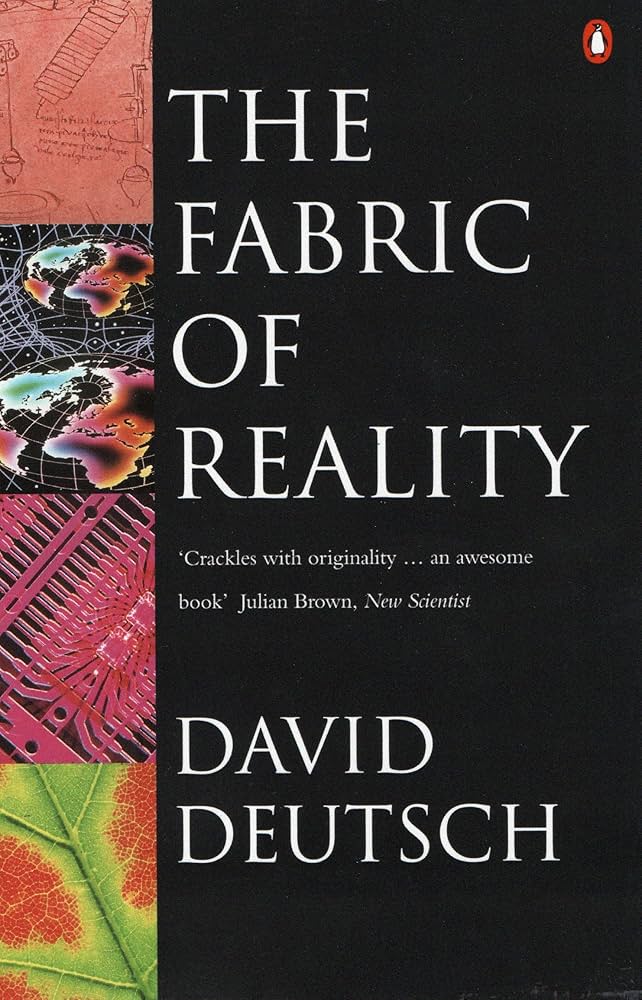Why I Read It
In my current learning journey, I’ve gone deep into value investing, business, sport science and psychology. While that has been invaluable, I realized I was lacking a more broad science-based perspective. So, I’ve been deliberately reading more books on science and also exploring faith-based works to widen my horizon.
Quantum physics, the perception of reality, and how our world is fundamentally structured are all topics that fascinate me, and The Fabric of Reality promised a comprehensive take on these ideas. The core argument that resonated with me the most is that knowledge is the foundation of everything. Knowledge drives all progress, innovation, and understanding. Everything that exists—beyond the fundamental laws of physics—is a product of knowledge. The more knowledge we acquire, the more we can influence and shape our world.
What I Learned
The biggest takeaway from this book is a reinforcement of something I’ve long believed—knowledge is the key to achieving anything. Whenever I feel stuck, limited, or constrained by a bottleneck, the answer is always more knowledge. If I find myself too deep in a niche or feeling directionless, I know that expanding my understanding will lead to solutions.
This book reaffirmed my worldview in that sense: knowledge is the foundation of progress. It also made me reflect on how important it is to document and process knowledge, which is one of the reasons why I’m building my blog—to track insights, projects, and ideas in a way that allows me to grow further. Of course, I recognize my bias here: I already believe in the power of knowledge, and this book only pulled me deeper into that rabbit hole.
What It Reminded Me Of
Several works came to mind while reading The Fabric of Reality:
- Stephen Hawking’s books – particularly A Brief History of Time for its exploration of fundamental physics and the nature of the universe.
- The Feynman Lectures on Physics – which, like Deutsch’s work, take complex scientific ideas and present them in a way that challenges the reader to think more deeply.
- Clear Thinking by Shane Parrish – because at its core, this book is about how we can systematically build our understanding of the world. Deutsch emphasizes the role of explanatory knowledge, and that connects well with Parrish’s focus on mental models.
Final Thoughts
This is a 5/5 book, but it’s not an easy read. It’s dense, and you need to be fresh and focused to absorb the ideas. I made the mistake of trying to read it in bed a few times—nearly impossible. You have to be willing to let the book take you places and give it your full attention.
I highly recommend having a strong foundation in mental models before diving into this book. If you’re not used to thinking in abstract frameworks, it might be difficult to fully grasp its depth. Shane Parrish’s Mental Models series (Volumes 1 – 4) would be a good starting point, along with some foundational science and technology reading.
That said, The Fabric of Reality is a book I’ll revisit. It’s the kind of work that rewards multiple readings, as each time you engage with it, your expanding knowledge base will allow you to extract deeper insights. If you’re interested in how knowledge shapes reality and how we can build better explanations to understand the world, this is a must-read.

Leave a Reply
You must be logged in to post a comment.